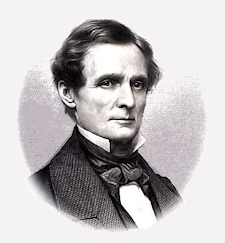“EXECUTIVE MANSION,
“RICHMOND, Va.,
“Oct. 11, 1862.
“GENL. L. T. WIGFALL,
“My dear Sir:
“It has been suggested to me1 that you thought Holmes had failed in his duty at Malvern Hill, by being too slow in getting into position, and in that connection I wish to say to you that he was ordered up from his position on the South side of James River to aid in the attack upon McClellan’s Army and if possible to prevent it from reaching the James River. It being then supposed that the enemy would endeavor to reach a landing some distance above Curl’s Neck. He moved down the River Road, taking Gen. Wise and his brigade with him, to the position indicated, where I found him on Monday morning, most advantageously posted. He had made a thorough reconnoissance and fully explained to me his position and plan of operations. He was then about a mile to the right of the place where I found you with Gen. Longstreet’s staff and where I met Genl. Lee. Genl. Lee had ascertained that the enemy was taking a different route by what was known as the Quaker Road and he ordered Genl. Holmes to advance and take position on that road to intercept the enemy’s retreat. He did so promptly, and waited at the place indicated with his infantry for the approach of the enemy. They did not come, but halted and offered battle before reaching Poindexter’s farm. Genl. Holmes thus fulfilled all his orders and proved as well his gallantry, as his candor, by subsequently expressing his regret that no one knew enough of the ground to have indicated to him what afterward was found to have been feasible, to wit, an attack upon the enemy’s left and rear. It may be that such remarks have led you to suppose that he was directed to do something which he failed to perform. If so, I am sure that your fairness needs only to have the facts distinctly pointed out to you. Genl. Lee reconnoitred the ground as far as he was able and I did the same thing in person—whilst Genl. Holmes was in position and under a heavy fire from the enemy’s gunboats. Genl. Lee certainly attributed no shortcoming to Genl. Holmes and it never occurred to me that any blame was fairly to be attached to him. I write this in justice to the individual but am urged much more by the consciousness of his peculiar fitness for the command to which he has been assigned.
“Your friend JEFFER. DAVIS.”
- THE autumn opened with dispiriting news from the West. Beauregard had been superseded and rumors were rife that a demand had been made on the administration for the removal of General Bragg. While we did not know certainly that this was a fact, there was no question but that dissatisfaction was felt in many quarters with President Davis’s policy and conduct of affairs, my father’s intimacy with him began to decrease, and strained relations to take the place of their former friendship. Notes asking for consultations to discuss pressing matters which formerly began “Dear Wigfall”—as the time ran on into the autumn were commenced “My dear Sir.” — Louise Wigfall Wright
